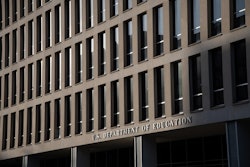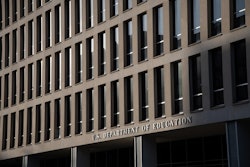The legacy of the late U.S. Rep. John Lewis was on the minds of presenters at a webinar hosted by the American Counseling Association (ACA) and the National Association of Diversity Officers in Higher Education (NADOHE).
 Dr. Anneliese Singh, associate provost for diversity and faculty development, chief diversity officer and professor of social work at Tulane University in New Orleans.
Dr. Anneliese Singh, associate provost for diversity and faculty development, chief diversity officer and professor of social work at Tulane University in New Orleans.
Good trouble, Singh said, wasn’t just a catchphrase ascribed to Lewis, who was an activist in the Student Nonviolent Coordinating Committee (SNCC) of the 1960s.
“He would ask you, ‘What kind of good trouble are you making?’” said Singh.
Singh said she wasn’t always sure what her answer should be, but she eventually found it: become maladjusted to the systemic oppression seen in society and in higher education and become deep listeners in the quest to undo those systems.
Singh and other scholars came together on Wednesday to explore ways that university counselors and chief diversity officers (CDOs) can dismantle systemic racism in higher education. Experts called on attendees to break down the siloes separating their fields, for counselors and CDOs to come together and provide opportunities for leadership, faculty and staff to learn the histories of oppressed people, and to listen to students and faculty of color who speak uncomfortable truths about their experiences on campus. Singh pressed the urgency of making equity a priority as the political landscape continues to polarize.
“Look at all the attacks on transgender and nonbinary communities,” said Singh. “You talk about one of the most oppressed communities that exists, especially when you have Black, Indigenous, and people of color (BIPOC) trans and nonbinary folks whose lives are being used as political footballs.”















